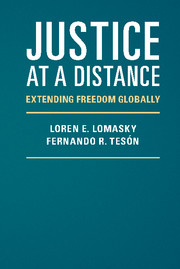8 - War
Published online by Cambridge University Press: 05 November 2015
Summary
The Anarchical Society
War is the most terrifying and destructive form of violence. A war of aggression inflicts a great injustice on others; it is a major crime. But not all wars are criminal. Most people believe that a state that is unjustly attacked has the right to defend itself. If these were the only truths about the morality of war, the right to wage war (jus ad bellum) would have a binary structure. A war is either unjustified aggression or justified self-defense; there would be no moral space between the two. This is the traditional view about jus ad bellum, supported, with variations, by most governments and scholars.
In this chapter we argue that the traditional view is too coarse, not granular enough, and that once the rationale for a just war is properly analyzed, it turns out that it is possible to think about wars that are not in defense to aggression but that nonetheless can be just. The issue is extremely thorny because the justice of a particular war will depend not only on the cause but also on its consequences. Even a war fought for a just cause may turn out to be unjust for other reasons – for example, because it brings about the death of many innocent bystanders. This is true even if one accepts the binary traditional view. In lawfully resisting an attack, a state nonetheless may inflict an unacceptable amount of harm. But before addressing these issues, we must see why war has such a special place in international relations.
Each sovereign state establishes the monopoly of force within that state. States have police, courts, and armies, and individual violence is narrowly confined. Sometimes these arrangements fail, and states plunge into anarchy, and often the monopoly of force plunges into oppression. But the ideal role of the state is to protect citizens against one another and to tame violence through the prism of the rule of law, accepted procedures, and constitutional guarantees. The modern state, when it works well, outlaws interpersonal violence by monopolizing force. It prohibits both opportunistic plundering and private retribution while providing means of redress to those wronged by the aggressive behavior of others.
- Type
- Chapter
- Information
- Justice at a DistanceExtending Freedom Globally, pp. 216 - 260Publisher: Cambridge University PressPrint publication year: 2015



